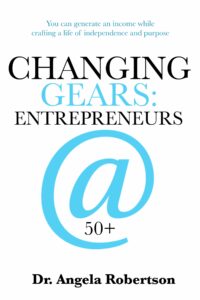Years ago a business I was involved with consistently employed school leavers in a front facing role. These young, and inevitably, women, were considered ‘cheap’ to employ as they were on youth rates.
Due to various reasons however, the incumbents left and needed to be replaced on a regular basis. The business kept repeating the pattern of employing younger people who stayed 6-8 months before moving on. The business accepted this as inevitable yet the cost of recruiting and training a replacement was a burden on a small company.
The suggestion was made that they employ an older person for the role. This was met with shock and some derision. An older person would be bored, an older person wouldn’t ‘fit’, an older person wouldn’t pick up the technology and so on.
However after advertising the role for the fourth time an older applicant was appointed. It was a great fit. In return the company got a loyal, stable and capable kaimahi (worker), who brought a wealth of life experience to the role and undertook tasks in a calm and professional manner.
When faced with choosing between two workers many employers do what the above company did; select the younger applicant over the older applicant.
Reasons for this vary but employers often erroneously perceive older workers as being slow, an awkward fit with younger staff, unwilling/unable to learn, or lacking computer skills and so on. In other words, people of a certain age are often discriminated against by employers who fail to see the advantages this demographic is able to bring to the workplace.
Older employees in the workplace provide experience, life, social and problem solving skills, balance and knowledge which benefits both employer and younger employees.
“It is crucial to recognize the profound value that age diversity brings to a workforce, particularly in a business setting. Older workers possess a deep understanding of how existing systems and practices intertwine with emerging technologies and methodologies. By bridging the gap between traditional and innovative approaches, they provide invaluable insights into how different components interact, ensuring a holistic perspective on problem-solving and decision-making.” – Nancy Hammervik
In Masterton, former historian and television presenter Hugo Manson has taken on an apprenticeship at the age of 82 years. His “boss” is 24 years of age. For Manson “… it’s an extremely productive relationship. One that I’ll always value”. You can learn more here.
If you are over 50, and looking for work or considering a career change; if you’re an employer wondering how to better capitalise on the talent among your older workers then have a look at some of our Wellington City Library resources.
Managing the older worker : how to prepare for the new organizational order / Cappelli, Peter
“Your organization needs older workers more than ever: They transfer knowledge between generations, transmit your company’s values to new hires, make excellent mentors for younger employees, and provide a “just in time” workforce for special projects. Yet more of these workers are reporting to people younger than they are. This presents unfamiliar challenges that–if ignored–can prevent you from attracting, retaining, and engaging older employees. In Managing the Older Worker, Peter Cappelli and William Novelli explain how companies and younger managers can maximize the value provided by older workers. The key? Recognize that boomers’ needs differ from younger generations – and adapt your management practices accordingly. For instance:
· Lead with mission: As employees age, they become more altruistic. Emphasize the positive impact of older workers’ efforts on the world around them.
· Forge social connections: Many older employees keep working to maintain social relationships. Offer tasks that require interaction with others.
· Provide different benefits: Tailor benefits–such as elder-care insurance programs or discount medication–to older workers’ interests. Drawing on research in management, psychology, and other disciplines,
Managing the Older Worker reveals who your older workers are, what they want, and how to manage them for maximum value.” (Catalogue)
Older workforces : re-imagining later life learning / Bingham, Domini
“We are all going to become old. Many countries are ageing demographically with ageing workforces. Despite anti-discrimination and equality laws, older workers are routinely left out from learning opportunities even unconsciously so, suffer stereotyping or they simply do not participate. Why is this so? This book looks to understand the background to this and re-imagine older workplaces to capitalise on older workers. The author explores what learning and development offers a best fit for older workforces through literature, research and case studies with organisations and individuals. She considers how an organisation might shift its strategic processes to offer a holistic workforce opportunity of value to both employee and employer, as it is cognitive skills that will be needed in future workforces. Emphasising the area of work agency and the human right to learning, this book turns ageing and learning in workplaces on its head, seeing older workers as vessels of untapped potential. It re-imagines their possibilities in a time of intense demographic and digital change. This book will be a pragmatic guide to academics, researchers and practitioners in the fields of workplace learning, human resource development, social policy and diversity.” (Catalogue)
Unretirement : how baby boomers are changing the way we think about work, community, and the good life / Farrell, Chris
“Demographic doomsayers predicted that baby boomers would bleed America dry, bankrupting Social Security and Medicare as they faded into impoverished old age. Chris Farrell argues that they are already extending their working lives with new careers, entrepreneurial ventures, and volunteer service. Unretirement not only explains this seismic change, it provides key insights and practical advice for boomers about to navigate this exciting new frontier.” (Catalogue) Also available in EBook Libby
Older women who work : resilience, choice, and change
“Older Women Who Work: Resilience, Choice, and Change provides one of the first in-depth examinations of women age 65 and older who have delayed retirement, exploring personal and career identity, social roles, and quality of life concerns. The fifteenth book in APA’s Division 35 Psychology of Women series, this edited volume presents a rich array of qualitative and quantitative research on older women’s experiences in the workplace. Chapter authors share insights about how organizational leaders can change societal structures to better support the motivations and needs of diverse older women in the workplace. The book also describes how consultants, educators, and mental health professionals can encourage development of personal grit, to help the growing numbers of older women exercise their right to opportunities and be adaptable in the face of employment challenges”– Provided by publisher.” (Catalogue)
How to find a job after 50 : from part-time to full-time, from career moves to new careers / Cummings, Betsy
“This practical guide tackles one of the largest issues in the workplace: finding work over the age of 50” (Catalogue)
Getting the job you want after 50 for dummies / Hannon, Kerry
“Provides readers over the age of fifty with helpful tips and techniques for updating their resumes, performing well on job interviews, and landing a job in a field or in an area that they are passionate about.” (Catalogue)
If working for others isn’t your thing – consider starting your own business.

Changing gears: entrepreneurs @ 50+ / Robertson, Angela C
“Globally, there is an emerging trend for people to start a business for the first time in later life. In New Zealand, 45% of these ‘Entrepreneurs’, are over the age of 50, and the trend has been steadily increasing since the onset of the COVID-19. Why do individuals in the second half of life choose to change gears, and go down this route? What is the trigger? What motivates them? What is the nature of the businesses they established, and how did they go about it?
In this book you’ll meet 33 Entrepreneurs @ 50+, who challenge the stereotypical belief, that advancing age narrows down life choices. It doesn’t! These individuals create their own reality. Their businesses range from the conventional to the ‘out there’, and their experiences include candid accounts of the challenges they faced, and their aspirations for the future. Regardless of your age and stage, circumstances and experiences, there are always opportunities to pick up ideas and lessons learned from others who have embarked on this path beyond mid-life. If you have that nagging feeling of ‘what’s next for me’, this book is for you. Inspired by their example, you might like to change gears too!” (Catalogue)
Ageless startup : start a business at any age / Terrien, Rick
“Ageless Startup guides retirees through the world of entrepreneurship. The book discusses what it takes to start a business at an advanced age, how seniors set themselves apart from their younger competitors, and provides general business startup guidance”– Provided by publisher.” (Catalogue)
If you need more information please contact the Prosearch team at the library. We can help you find information across a range of perspectives and resources. All enquiries are treated in confidence


